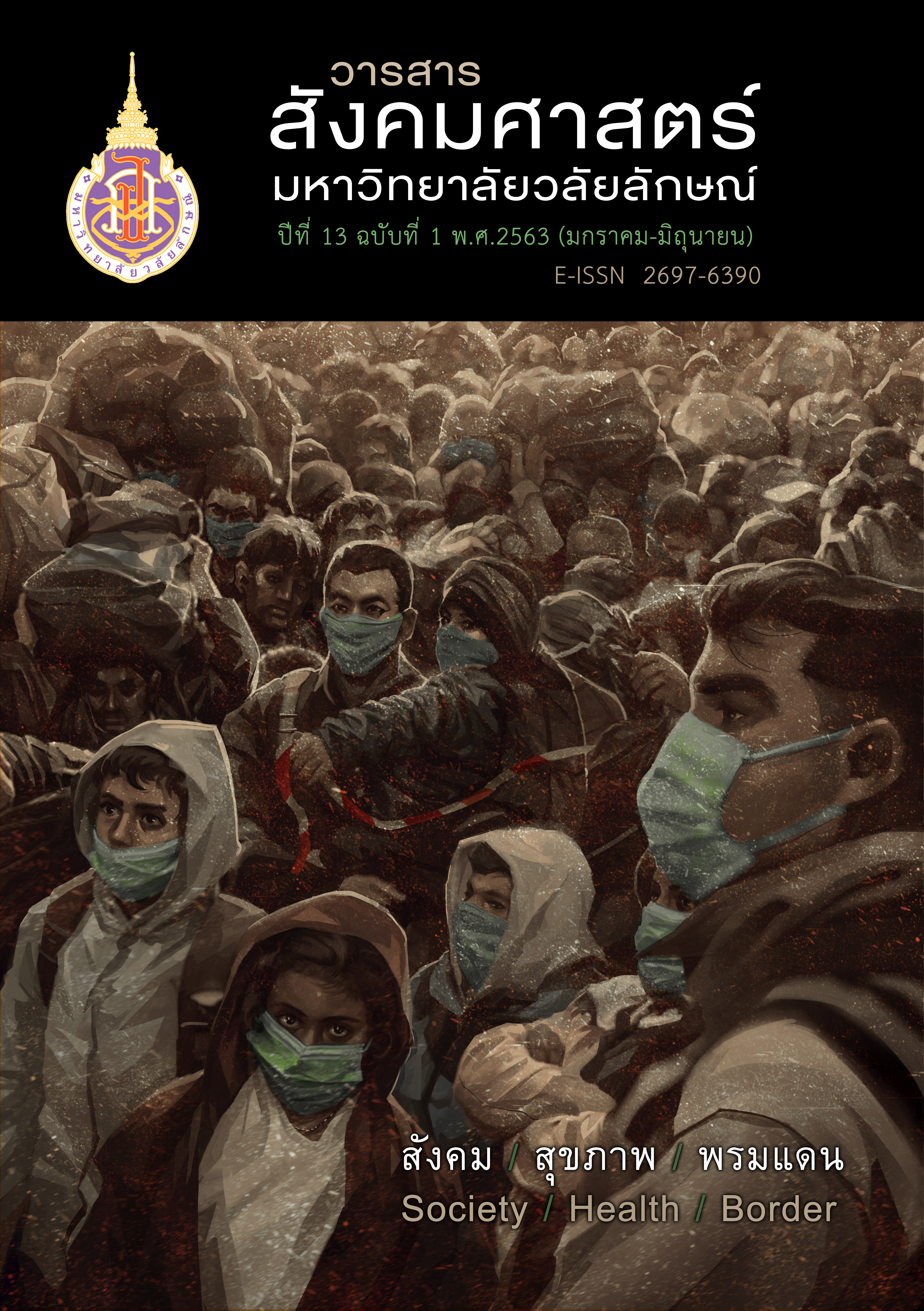A Study of Language Phenomenon in the Online-Business Communication between Thai and Chinese Following the Co-Operative Principle
Main Article Content
Abstract
In this study, the author used Grice’s cooperative principle to evaluate the trend of the online business communication in Thai and Chinese languages. Based on Grice, the cooperative principles in speaking maintain that utterance must be clear. The speaker must avoid unclear words, must be concise, must be well-organized, and avoid ambiguity; otherwise the listener will have to reconsider the meaning of the spoken utterance (in this case the online conversation). Thus, inappropriate word choice that mismatches the status of the speaker and the receiver might result in misunderstanding or dissatisfaction. The study found that the use of Thai and Chinese languages in online business is developing in the same direction. It exhibits the attempt to choose words in the same level of the receivers to make the customers feel acquainted. In Chinese, speakers choose pronoun “你 (ni)” instead of “您 (nin)”, while such informal second person pronoun is not found in Thai. The additional exclamation or politeness particle in Thai was changed to the word “จ้า (ja)” which is rather informal, while the spoken sentence in Chinese was added by the words “哒 (da), 啦 (la)”. Choosing words in the same level of the receivers could be performed as long as their rights are not violated. The chosen words should follow the cooperative principle of Grice, especially related to the way and manner of speaking with clear, proper and unambiguous words; thus the communication with effective conversations could increase the success of business.
Article Details
Copyright: CC BY-NC-ND 4.0
References
Grice, P. (1975). Logic and conversation. New York: Academic Press.
Lakoff, G. A. M. J. (1980). Metaphors we live by. Chicago: The University of Chicago Press.
Levinson, S. (1983). Pragmatics. Cambridge: Cambridge University Press.
Naksakun, K. (2013). Khobjai Khobkhun Khobprathai. Retrieved from https://talk.mthai.com/inbox/392912.html
Sirikhan, S. (2019). Stallholders’ need for using English in advertisement for using English in adveritsement for cultural products: A case study of sunday walking - Street market in Chiang Mai. Journal of Community Developement Research (Humanities and Social Sciences), 12(2), 82-95.
Wangsomchok, C. (2006). A pracmatics analysis of Humor-Laden strategies in Thai Situation Comedies. Journal of Liberal Arts, 6(2), 100-127.
Waraporn Kaewklad, D. P. P. (2017). Violating a maxim in political news of newspapers in 2014 Thailand’s coup. In Proceedings of the NIGRO Khonkaen University. Khonkaen: Khonkaen University, Thailand.


